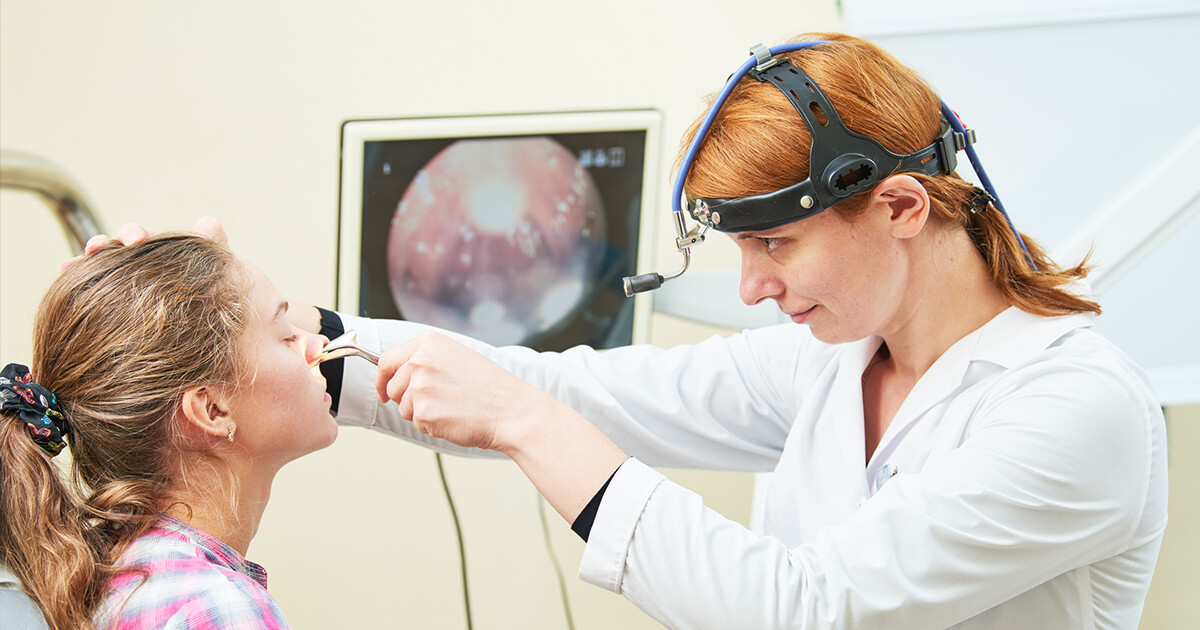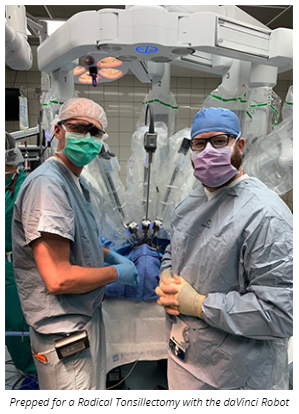Hidden Symptoms That an Otorrinolaringologia Expert Can Treat Before They Worsen
Hidden Symptoms That an Otorrinolaringologia Expert Can Treat Before They Worsen
Blog Article
Exploring the Area of Otolaryngology: What to Anticipate When You Consult an ENT
Otolaryngology, generally described as ENT, encompasses the medical diagnosis and treatment of ear, throat, and nose problems. For those experiencing relevant concerns, speaking with an ENT expert can provide clearness and relief. Recognizing what to expect during such examinations is important for efficient communication and care. This review will describe key aspects of the ENT experience, consisting of usual factors for sees and the processes involved in diagnosis and therapy.

Understanding Otolaryngology: An Overview
Otolaryngology, frequently referred to as ENT (Nose, ear, and throat) medication, is a customized branch of medication that focuses on the diagnosis and treatment of conditions impacting these vital locations of the human body. This area incorporates a variety of conditions, consisting of those pertaining to hearing, balance, respiratory feature, and speech. Otolaryngologists are educated to manage both medical and medical treatments, utilizing advanced methods and innovations. Their competence extends past typical conditions, addressing issues such as allergies, sinus infections, and hearing loss. In addition, they play an important function in the management of head and neck cancers, offering thorough treatment tailored to individual client demands. In general, otolaryngology stays important for keeping health and wellness and lifestyle in affected people.
Usual Factors to See an ENT Expert
Numerous individuals seek the experience of an ENT professional for a range of reasons, mirroring the varied nature of conditions that affect the ear, nose, and throat. Typical issues include persistent sinus problems, which often causes relentless nasal congestion and facial discomfort. Allergic reactions and their connected symptoms, such as sneezing and itching, also prompt brows through to these specialists (Voice). Hearing loss, whether progressive or unexpected, is one more substantial reason for examination. On top of that, people might seek examination for throat problems, including relentless hoarseness or swallowing difficulties. Sleep apnea, characterized by interrupted breathing during sleep, is regularly addressed by ENT experts. Each of these conditions highlights the importance of specialized treatment in managing complicated ENT-related health concerns
Preparing for Your ENT Consultation
When getting ready for an ENT consultation, it is necessary to collect appropriate information and think about any kind of certain worries. Clients should assemble a comprehensive case history, including previous ear, nose, or throat problems, surgical procedures, and present drugs. Documenting signs and symptoms-- such as severity, duration, and frequency-- can supply valuable understandings for the ENT expert. Additionally, individuals ought to prepare a listing of questions they wish to ask, ensuring that all worries are attended to during the go to. Bringing along any pertinent clinical documents or examination results can additionally aid the ENT in understanding the client's problem. Individuals must validate their consultation details, including time, date, and area, to lessen any type of last-minute confusion. Appropriate prep work can improve the performance of the examination and cause better end results.
What to Expect Throughout the Consultation
As the examination begins, the individual can anticipate to participate in a thorough discussion with the ENT professional about their symptoms and case history. The expert will certainly inquire about the period, frequency, and extent of signs such as hearing loss, nasal blockage, or aching throat. In addition, the person's previous medical conditions, drugs, and any pertinent household background will be assessed, helping the expert in creating a total understanding of the person's wellness. The ENT might additionally inquire about way of living factors, such as exposure to irritants or irritants. This open dialogue establishes a structure for the assessment, guaranteeing that the individual's problems are dealt with and establishing the stage for any essential evaluations or referrals for therapy.
Diagnostic Examinations and Procedures in Otolaryngology
An array of analysis tests and procedures are important in otolaryngology to precisely assess and diagnose conditions influencing the nose, throat, and ear. Usual examinations include audiometry, which gauges hearing feature, and tympanometry, assessing middle ear stress. Nasal endoscopy permits visualization of the nasal passages and sinuses, while laryngoscopy analyzes the throat and vocal cables. Imaging methods, such as CT scans and MRIs, provide in-depth views of head and neck frameworks. Allergy screening may likewise be carried out to identify triggers for sinus or respiratory system concerns. These diagnostic tools enable ENT specialists to establish a comprehensive understanding of clients' problems, guaranteeing customized and reliable monitoring strategies. Correct medical diagnosis is vital for successful treatment outcomes in otolaryngology.
Therapy Options Used by ENT Specialists
ENT professionals provide a selection of therapy options customized to resolve certain conditions influencing the nose, throat, and ear. These therapies range from conservative methods, such as medication and way of life adjustments, to even more intrusive procedures. Allergic reactions may be handled with antihistamines or immunotherapy, while chronic sinus problems might require nasal corticosteroids or sinus surgical procedure. For hearing loss, ENT experts usually suggest hearing aids or surgical interventions like cochlear implants. In instances of throat disorders, options can consist of speech treatment or medical procedures to eliminate blockages. Furthermore, they might supply assistance for taking care of sleep apnea, including the usage of CPAP devices or surgical interventions. On the whole, the goal is to enhance clients' lifestyle with individualized treatment and effective treatment methods.
When to Seek Follow-Up Treatment With an ENT
When to seek follow-up care with an ENT professional is essential for managing continuous signs and symptoms or difficulties connected to nose, throat, and ear conditions, recognizing. Individuals should consider arranging a follow-up consultation if symptoms persist in spite of preliminary therapy, such as chronic ear discomfort, nasal blockage, or throat discomfort. Modifications in hearing, equilibrium problems, or unusual nasal discharge may also call for additional assessment. Furthermore, if a person experiences adverse effects from recommended drugs or has undertaken a surgery, follow-up care is important to keep track of healing and resolve any problems. Timely examinations can assure efficient administration of conditions, prevent potential problems, and supply satisfaction regarding one's wellness. Seeking follow-up care promotes proactive health and wellness monitoring in otolaryngology.
Often Asked Concerns

What Certifications Should I Search for in an ENT Specialist?
When looking for an ENT specialist, one need to try to find board accreditation, appropriate experience, and solid individual evaluations. Furthermore, efficient interaction abilities and a caring strategy can greatly improve the overall treatment experience.
Just how Do I Select the Right ENT for My Needs?
Selecting the appropriate ENT expert entails examining their qualifications, experience, and client evaluations (ENT Doctor). It is vital to contemplate their communication design and method to therapy, ensuring they straighten with the individual's details wellness requirements Voice and preferences
Are There Any Type Of Threats Related To ENT Procedures?
The threats related to ENT procedures may include infection, blood loss, anesthetic complications, and prospective damage to bordering structures. Individuals must discuss these dangers with their medical professional to understand private concerns and guarantee informed choices.
Just How Can I Take Care Of Anxiousness Before My ENT Appointment?
To manage anxiousness before a consultation, people can practice deep breathing exercises, envision positive results, prepare inquiries in breakthrough, and seek support from good friends or family, cultivating a sense of peace of mind and calmness.
What Should I Do if I Experience Negative Effects From Therapy?
The person should promptly report them to their health care service provider if side effects from therapy occur. Changes to treatment or additional treatments might be essential to ensure safety and security and performance in handling their problem - ENT surgery. As the appointment begins, the person can anticipate to engage in a complete conversation with the ENT expert regarding their symptoms and clinical background. These diagnostic tools allow ENT professionals to establish a complete understanding of individuals' problems, ensuring customized and effective management plans. ENT experts use a range of treatment alternatives customized to resolve certain conditions influencing the ear, throat, and nose. When looking for an ENT professional, one must look for board qualification, appropriate experience, and strong client evaluations. Choosing the best ENT expert entails evaluating their credentials, experience, and person evaluations
Report this page